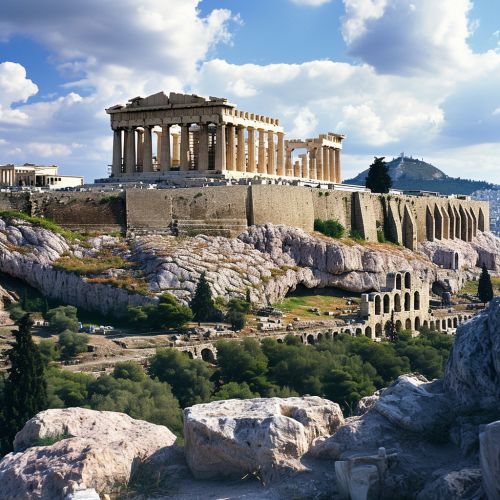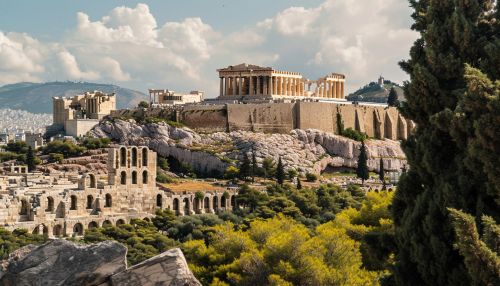Classical Athens
Introduction
Classical Athens refers to the city of Athens during a period of around 200 years, from 480 to 323 BC, known as the Classical period. During this time, Athens became the leading city of Ancient Greece, with its cultural achievements laying the groundwork for Western civilization.
Historical Overview
The Classical period in Athens began after the city's victory against the Persian invasion at the Battle of Marathon in 490 BC. This period is often divided into the Golden Age, from the end of the Persian Wars to the death of Pericles in 429 BC, and the Classical period proper, from 429 BC to the death of Alexander the Great in 323 BC.


Government and Politics
Classical Athens is most famous for the introduction of democracy by Cleisthenes in 508 BC. This political system, where all free male citizens had equal political rights, freedom of speech, and the opportunity to participate directly in the political arena, was a significant departure from the oligarchic systems in place in most other Greek city-states.
Society and Culture
The society of Classical Athens was a powerful mix of different social classes and traditions. The city was home to a large number of metics, or resident aliens, who played a crucial role in the city's economy. Slavery was also a significant part of Athenian society, with slaves making up about a third of the population.
Philosophy and Education
Classical Athens was a center of learning and philosophy, home to philosophers such as Socrates, Plato, and Aristotle. The city's intellectual climate fostered the development of many key concepts in Western philosophy, including ideas about democracy, truth, and the nature and purpose of human life.
Art and Architecture
The art and architecture of Classical Athens are considered some of the most significant contributions to Western culture. The city's architects and sculptors, such as Phidias and Ictinus, created works of enduring beauty and significance, including the Parthenon, the Erechtheion, and the statue of Athena Parthenos.
Classical Athens was a significant military power in ancient Greece. The city's military strength was based on its powerful navy, which played a crucial role in the defeat of the Persian invasion and allowed Athens to establish an empire in the Aegean Sea.
Decline and Legacy
The decline of Classical Athens began with the Peloponnesian War, a devastating conflict with Sparta that lasted from 431 to 404 BC. Despite its decline, the legacy of Classical Athens remains significant. Its contributions to art, philosophy, politics, and other fields continue to influence Western culture.
